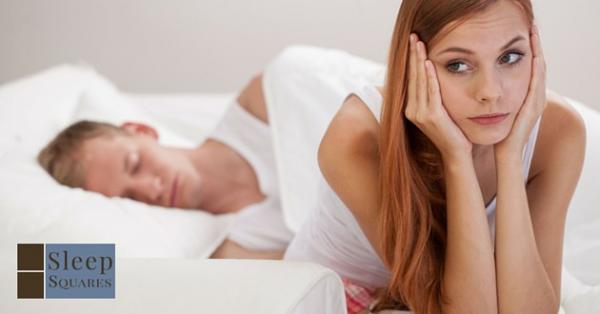
Wives need no longer feel guilty for feeling more tired than their husbands, even when they both get the same amount of sleep. The truth is, women just need more shut-eye, according to recent research that studied the disparity between men, women, their health and the quality of their sleep.
Women use more of their brains than men do
Professor Jim Horne, director of the Sleep Research Center at Loughborough University, says women need an average of 20 more minutes of sleep per night than men. And you can blame it on the amazing ability women's brains have to multitask.
"One of the major functions of sleep is to allow the brain to recover and repair itself," Horne told the Daily Mail. He is also the author of "Sleepfaring: A Journey Through the Science of Sleep."
"The more of your brain you use during the day, the more of it that needs to recover and, consequently, the more sleep you need," he said. "Women tend to multitask - they do lots at once and are flexible - and so they use more of their actual brain than men do. Because of that, their sleep need is greater."
Sleep disruptions impact sleep quality
Women also have a harder time falling back to sleep than men according to a University of Surrey study cited by the Daily Mail. This is could also be linked to a woman's tendency to think and worry when she's lying in bed trying to sleep.
Doctors recommend adults accumulate six to eight hours of sleep per night. Unfortunately, it's a recommendation that is often difficult to meet, especially because technology tends to keep us up late, whether we're surfing social media, streaming our favorite television shows or working from home. Of course, mothers have an additional sleep stumbling block in the form of pregnancy sleep disturbances and the care of young children.
Lack of sleep harms women more than men
And as if they didn't have enough to worry about already, women suffer more adverse side effects from a lack of sleep than men do, as well. Dr. Edward Suarez, a researcher and associate professor at Duke University School of Medicine, reported in his study that "poor sleep has been linked to increased risk of coronary heart disease (CHD), Type 2 diabetes and hypertension," as well as "greater psychosocial distress, higher fasting insulin, fibrinogen and inflammatory biomarkers, but only for women."
Suarez characterized these symptoms as gender specific because the same complications were not observed in men.
To combat the hostile sleep environment we live in, the National Sleep Foundationsuggests sticking to the same sleep schedule every day, even on the weekends. This routine will help your body know when to prepare for rest. You should also try to exercise daily, come up with a relaxing bedtime ritual, keep your bedroom between 60 and 67 degrees Fahrenheit, and check your sleep environment for distractions or noises.
Three chemicals control sleep patterns
Another obstacle to sleep can be a lack of the three principle components of good sleep: serotonin, melatonin and acetylcholine. A sleep-aid containing these chemicals can elevate these levels naturally and provide much-needed assistance against a variety of moderate to severe sleep related issues, whether they stem from work, stress, diet, lifestyle or any other of the countless problems we experience that disrupt our sleep.
Once such sleep aid is Sleep Squares, a delicious, chocolate-flavored sleep-aid crafted from natural active ingredients. Sleep Squares are clinically proven to help you fall asleep fast and maintain sleep throughout the night.Visit Sleep Squares to learn more.

